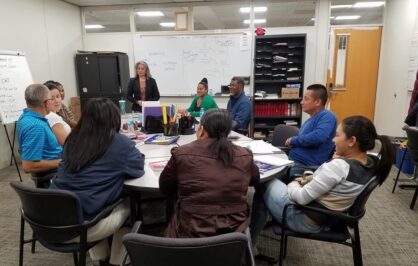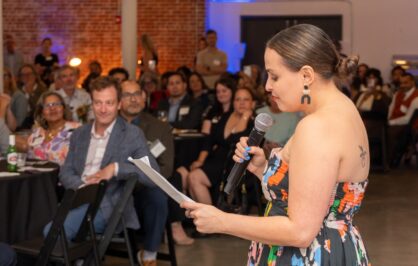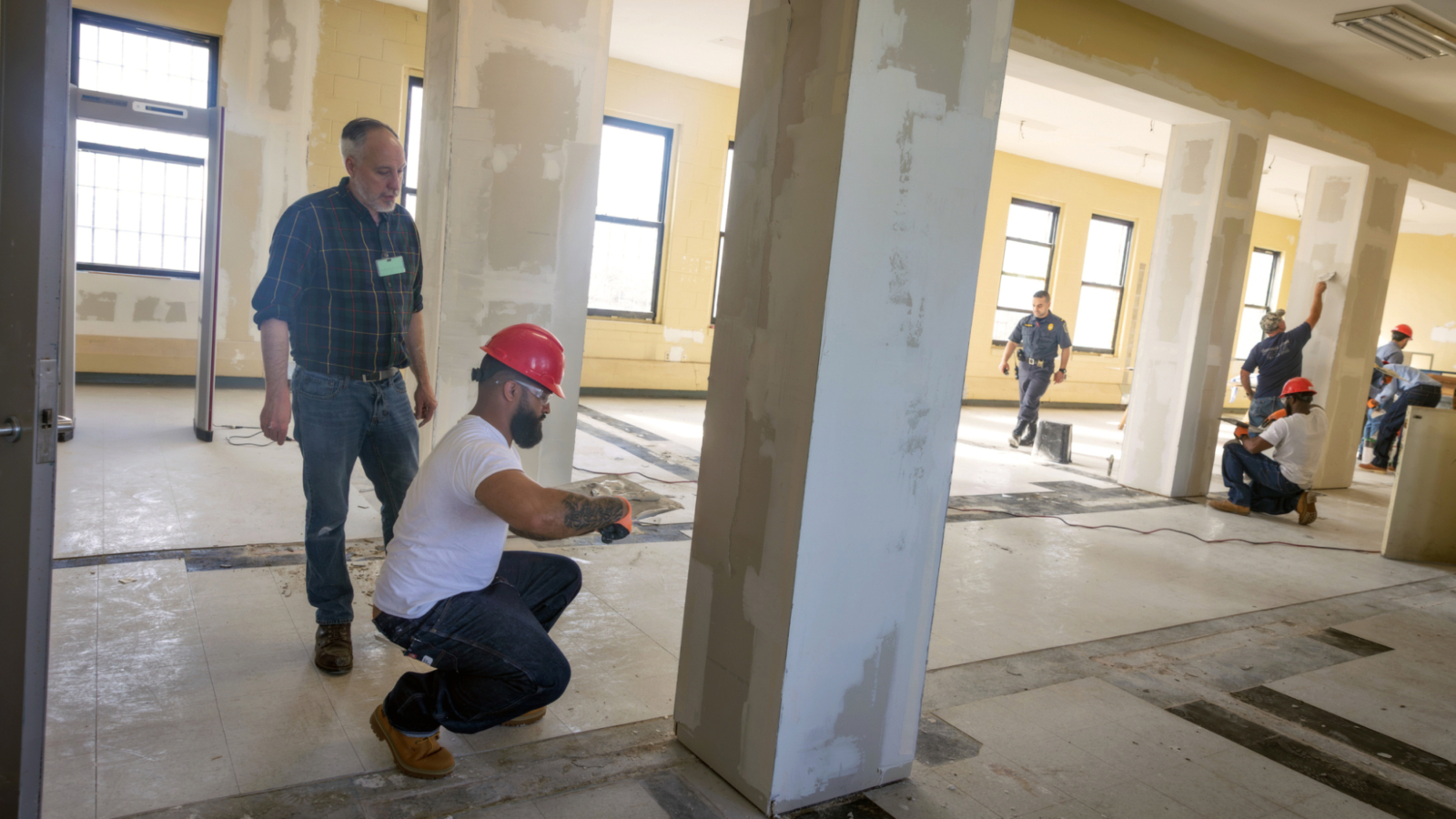
Grants & Scholarships
Breaking the cycle of incarceration
The Rhode Island nonprofit Building Futures has been promoting construction jobs since 2007, delivering programs that have helped hundreds of unskilled and unemployed—often previously incarcerated—Rhode Islanders find a career path.
“These kids are not hardened criminals—they did it for family, to support themselves, they made a mistake. And they will wind up back there if there is not an opportunity for them to change. You've got to get them marching in the right direction,” says Ian Chase, chief program officer for Building Futures.
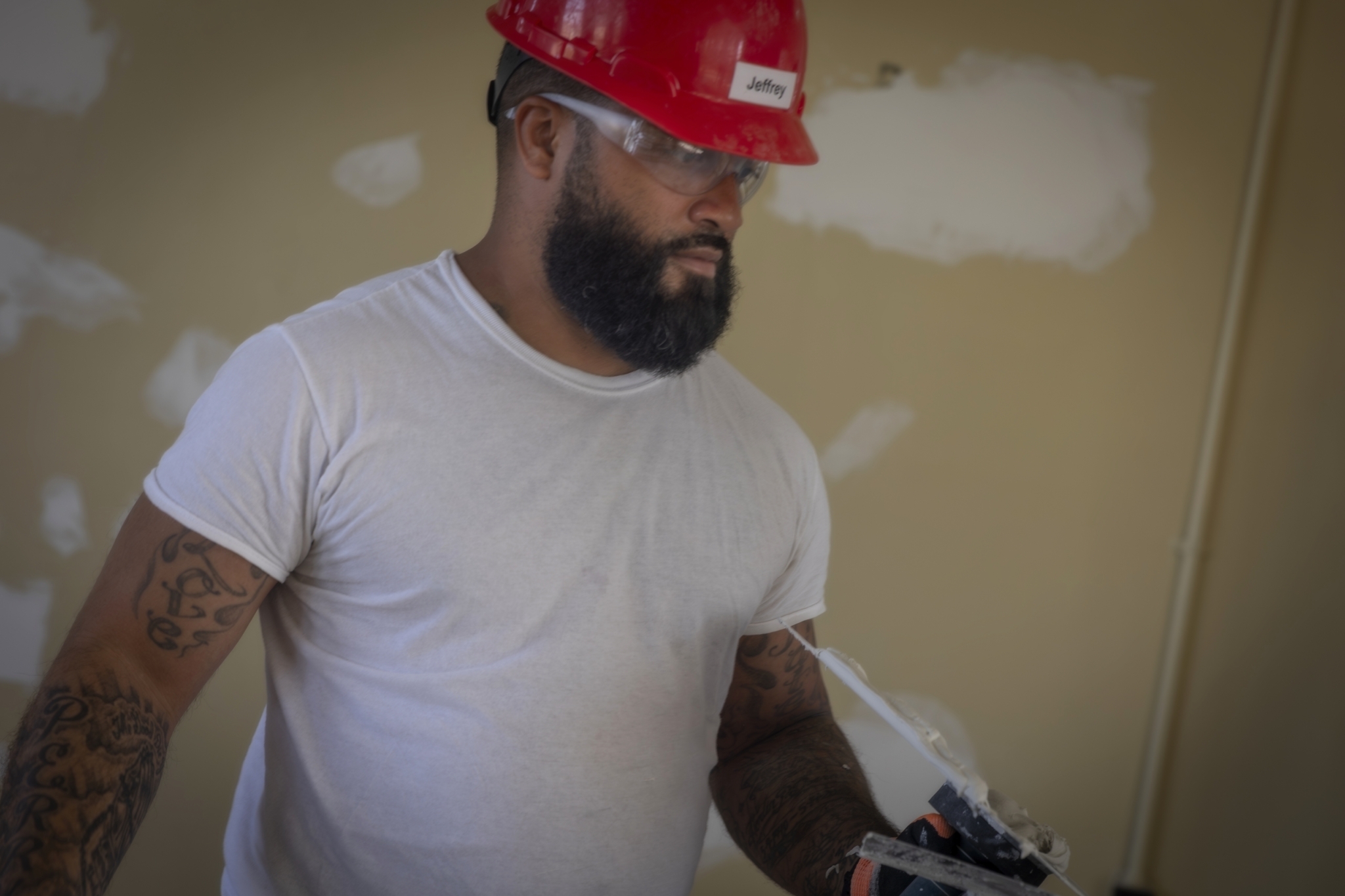
Under the leadership of founder, President & CEO Andrew Cortés, the Rhode Island nonprofit Building Futures has been promoting construction jobs since 2007, delivering programs that have helped hundreds of unskilled and unemployed—often previously incarcerated—Rhode Islanders find a career path.
The Rhode Island Foundation has been funding them since that time, increasing the amount every year.
In 2020, Andrew started talking to the Rhode Island Department of Corrections. Why not start teaching inmates a trade while still inside?
Formerly incarcerated people face alarming rates of joblessness—joblessness is a top predictor of recidivism—and many return to criminal activity to get by financially. Few resources are available to help them find housing. Limited re-entry support makes it challenging to adjust to normal life. Building Futures believes in addressing these collateral consequences of incarceration.
Andrew submitted a competitive federal Bridge to Opportunity grant through the Bureau of Justice Assistance proposing a pathway to careers in construction starting with pre-release training.
Ian Chase says getting the grant was a longshot. Yet Rhode Island was one of nine states to receive $900,000 from the Department of Justice. Since that time, the Foundation has added almost half a million dollars to the pot.
And thus, Building Futures Inside (BFI) was born.
Brian Carvalho, a lieutenant in the minimum-security facility of Rhode Island’s Adult Correctional Institutions, started as a Correctional Officer at age 21 in Maximum Security and over the past twenty years has been promoted and worked his way through Medium, Women’s and for the past seven years, in Minimum.
“A lot of programs prepare offenders to do some kind of work—cutting grass, preparing food, picking up litter for RIDOT, and from that they get good time and minimal pay. A lot of folks at Minimum do not have a work ethic so work details are good for them—anyone on highway litter crew gets four days per month good time. If someone comes in with a skill set, we’re going to match them for that type of job, like assembling furniture for our state universities and government.
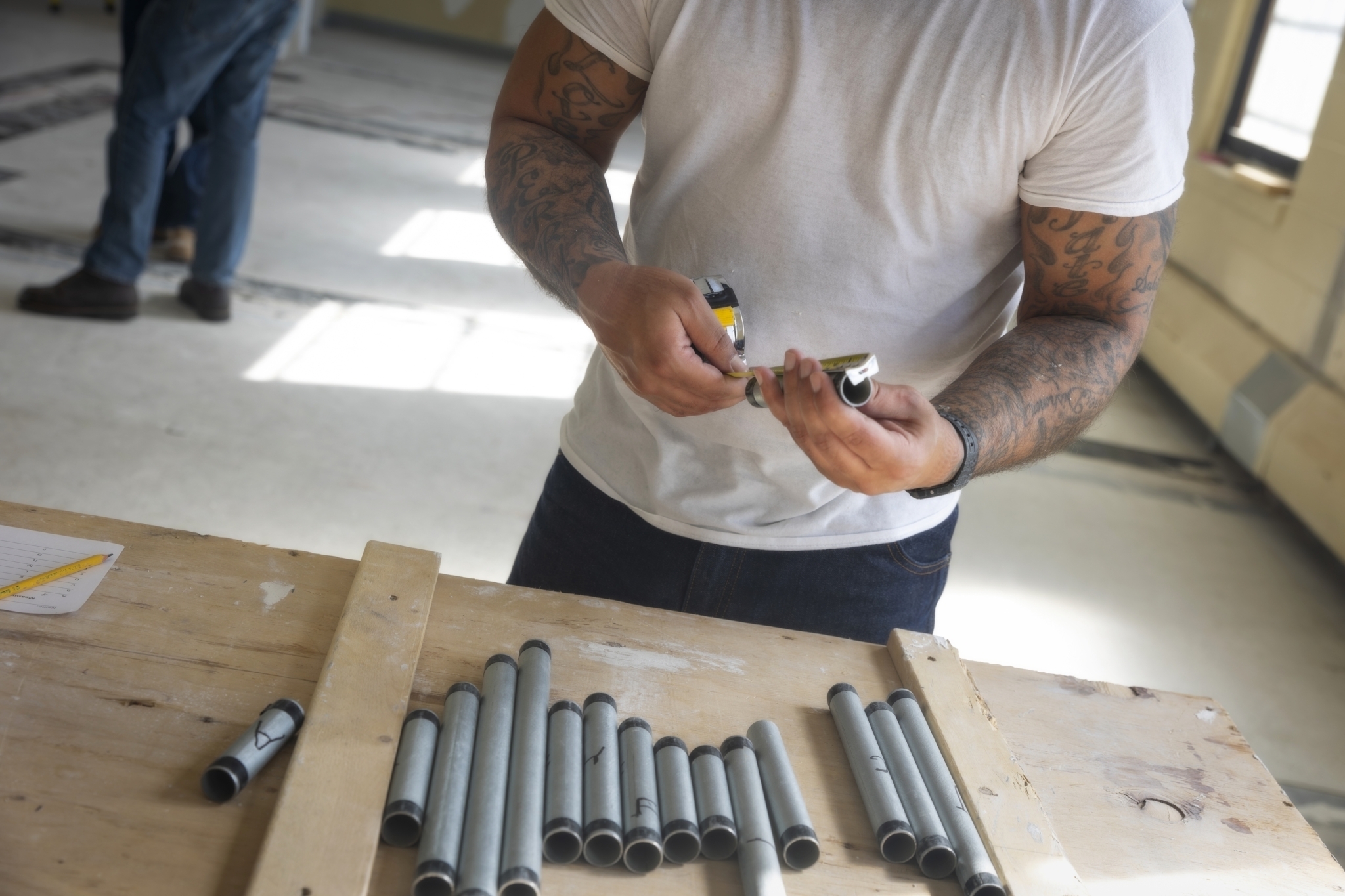
“But why not teach them a trade? We as a department have to start treating these people as if they are going to move in next door to us. What kind of neighbor do you want? We must give them some skill to leave the prison and make a living. When Jane DelSesto, then at DOC, came to me and said, ‘we want to pilot this program proposed by Building Futures to expand education and workforce training for incarcerated and re-entering individuals,’ I jumped at the chance to make it happen here in Minimum.”
In partnership with the Rhode Island Building and Construction Trades Council (RIBCTC) and the North American Building Trades Union, BFI provides 120 hours of construction training to inmates beginning pre-release, with inmates receiving a nationally recognized industry credential.
Post release, program participants transition to Building Futures’ community-based Pre-Apprenticeship program for additional training before applying for a trade union apprenticeship—with a starting wage of $17-$25 per hour, increasing to an average of $38/hour and benefits within three-five years.
On the third floor of Minimum Security at the ACI, seven inmates who are part of the third BFI cohort are taping and spackling sheetrock they have hung in a gutted beautiful third-floor space flooded with light that Lt. Carvalho had managed to claim for BFI. The first two cohorts were relegated to a cramped basement space for the 20-week program.
Another room is lined with pegboard with each tool outlined in different colors to ensure the tools are returned to the proper place each day. Each inmate has a color and a full set of tools assigned to him. Ian and the BFI instructor, Kevin Landry, scan the room to help those who appear to need it.
When they get involved in this program, they see the bigger picture.
- Brian Carvalho, Lieutenant, Rhode Island Adult Correctional Institutions, Minimum Security
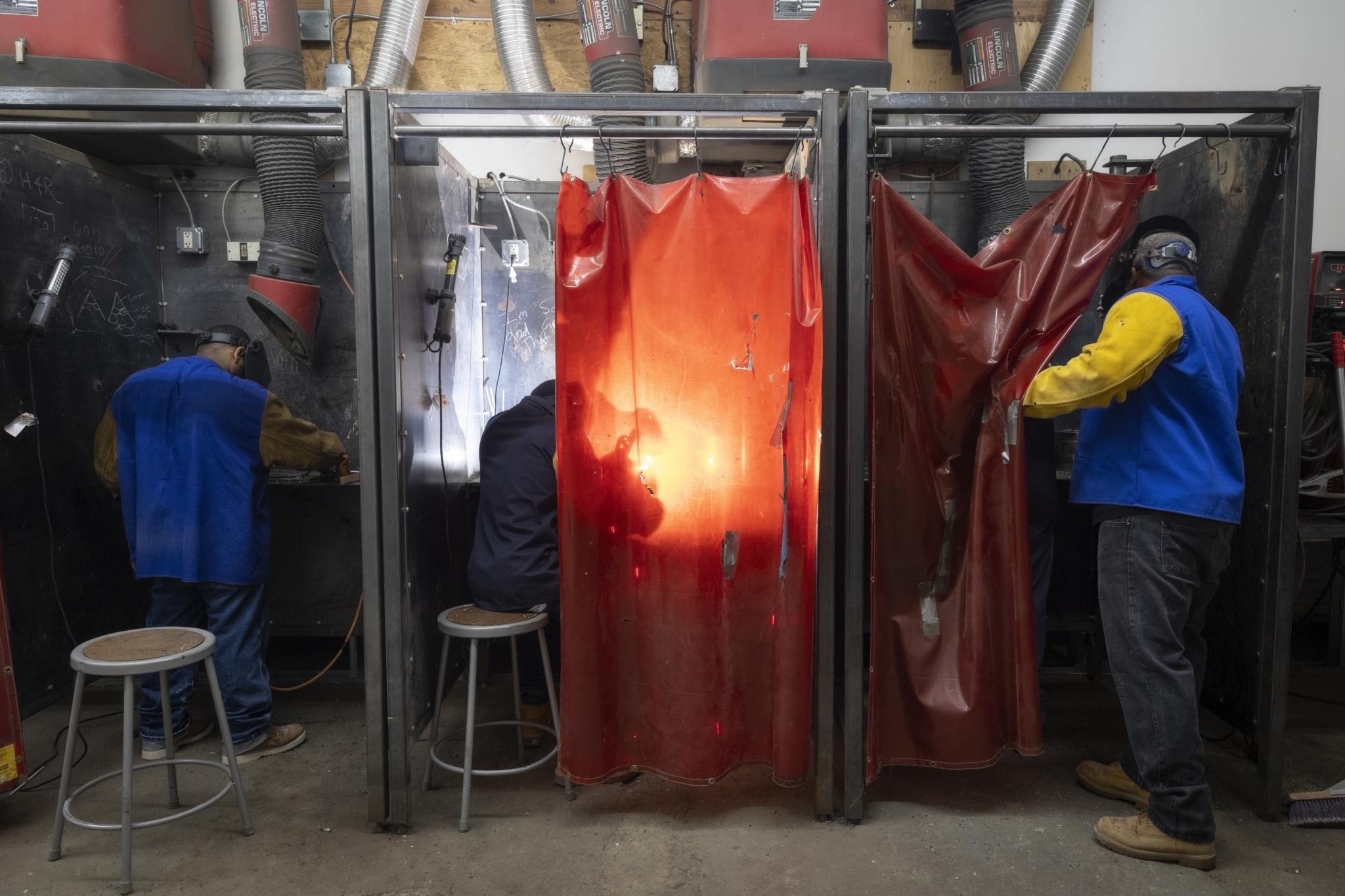
Another part of the space is set up as a classroom for afternoon instruction in basic math, fractions, and blueprint reading. Every day, each worker is required to take a ‘measuring test’ whereby there are eight or ten pipes cut to different lengths and each must be measured correctly to within 1/16 inch. The only thing that indicates that this is not a typical work sight is the metal detector that each pass through on their way to lunch.
“When they get involved in this program, they see the bigger picture,” says Lt. Carvalho. “They know they will be terminated from the program for disciplinary problems—if severe enough, sent to a higher security. Rarely does any one of them want to ruin this opportunity to become a union welder, carpenter, or electrician. For the first time ever in my career, previously incarcerated individuals come back to the prison to thank me.
“I know some of these guys from Maximum, and I’m seeing them develop maturity, a work ethic, and discipline. Slowly they let go of their gang, telling me that ‘this program is doing more for me than my gang ever has.'
"Now on a Sunday night, they ask if they can go in the space and work, take on additional projects. They’re buying in.”
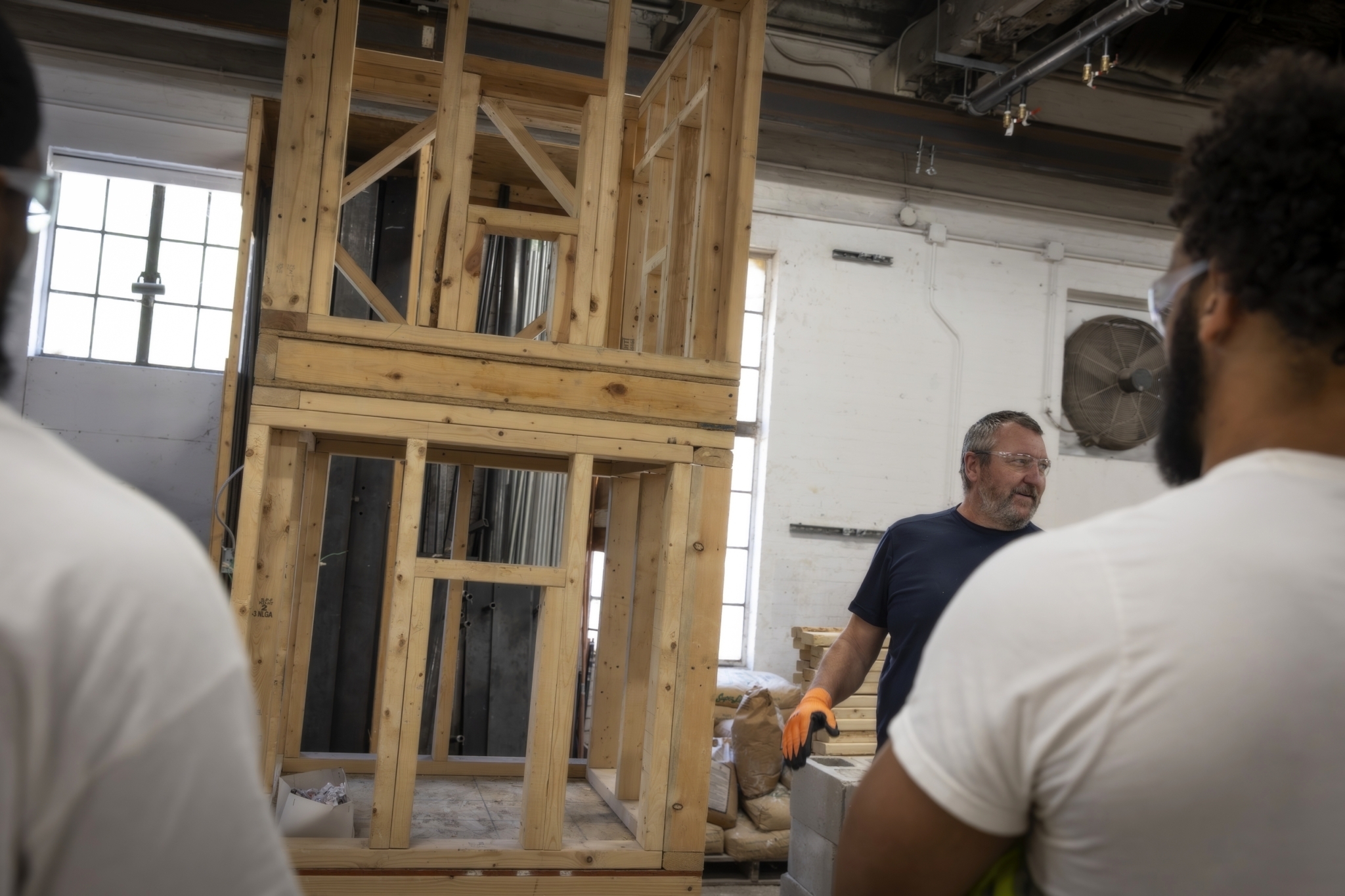
When asked if he had reservations about working with a prison population, Ian says: “In my 17 years of training outside, I can take someone and get him or her to a high degree of success, but there is often an Achilles heel in this population. It’s hard to work with someone who can’t stay away from substance abuse or gang violence or has mental illness. The inability to do things we simply take for granted. Like getting a driver's license and keeping it. File taxes. Do what you need to do to have a life in America. Some didn’t even know how to read a ruler.
“Inside, their day is structured and many of them gravitate towards a structured life after they get out. Construction offers that. It starts at 7 am, not 7:05, and that is tools in hand.
“These guys want this because they have been locked out of everything else. In construction, they are not judged by what they have done in the past.” If they stick to the plan, everything is going to be alright. They don’t have to risk getting shot, stabbed or arrested to make a living.
“And construction is such a cool job,” Ian says with a laugh. He should know—he's been wearing a tool belt his entire life. “Putting on the hard hat and the boots every day—it’s cool.”
It’s active all day long, working outside in different weather with a great group of people where there’s always joking going on. You can move up. The industry needs leaders and they’re good at assessing and rewarding those who can and want to lead. The more you can handle the responsibility, the more the contractor or foreman will give it to you. “It’s hard; it’s challenging, but you learn lots of useful skills, you don’t have student loans. Sometimes I wonder why everyone doesn’t want to do this!”
Once or twice during the program, the inmates are brought to the Building Futures training site on Acorn Street in the Valley neighborhood of Providence. There they have the space to work on larger projects and prototypes. They can try out welding, which is not allowed inside due to fire codes.
from a hard place to a better place
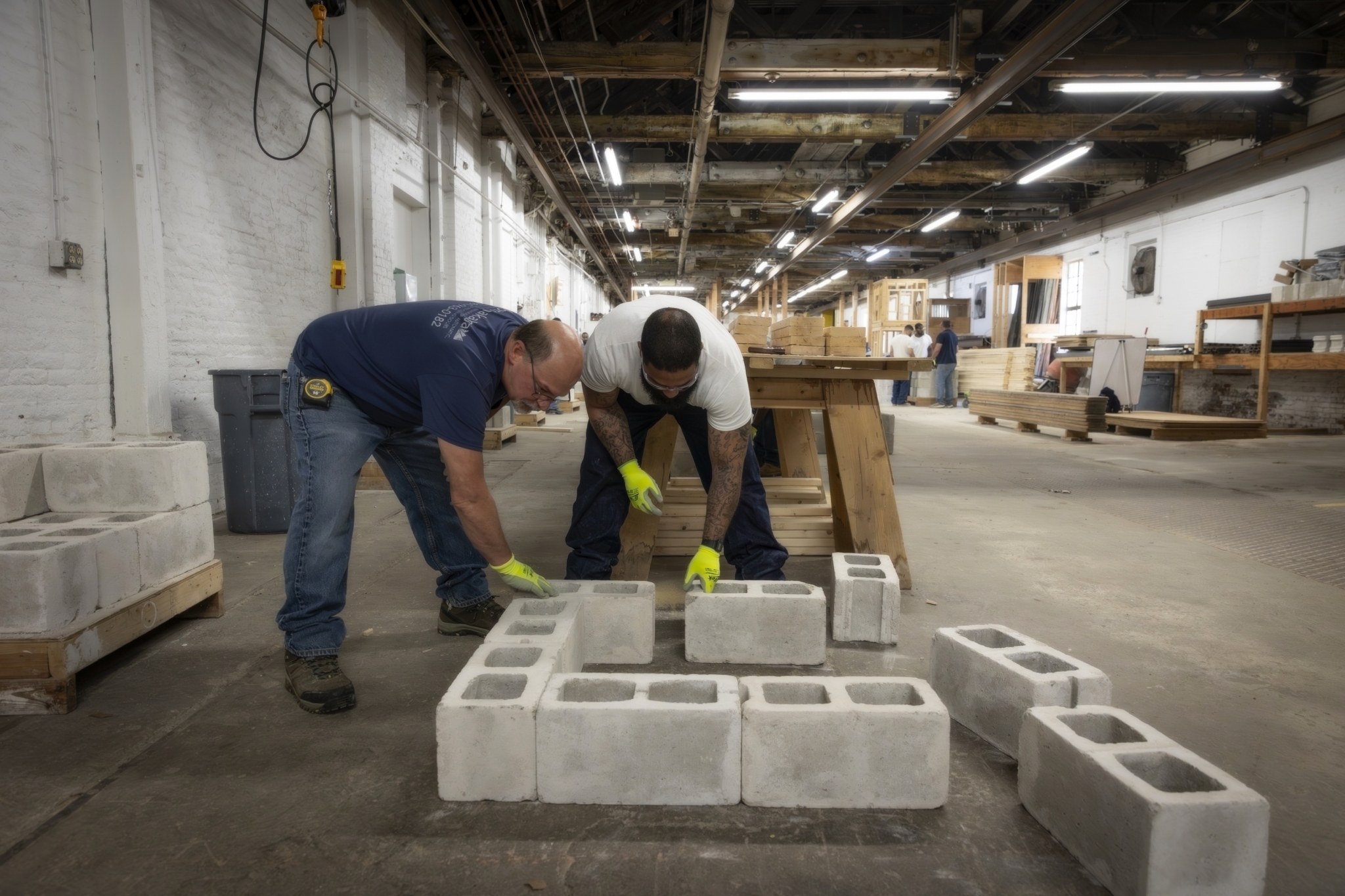
It’s mid-June and cohort three is graduating from the BFI program. Several of them are close to a release date, including Jeffrey P., hoping to get out in time to start the July 1 apprenticeship at Building Futures on the outside. He is 33 years old, serving time for ‘manufacturing and delivering of a controlled substance’. Sentenced to 8 years with 19 months to serve, he will spend the remaining time on probation.
A couple dozen visitors and staff line the perimeter of the room while the seven men who are graduating take seats in the center. The walls are lined with trade union insignias and union leaders are present today to congratulate and welcome the graduates.
Joe Walsh, business manager of IBEW (International Brotherhood of Electrical Workers) Local 99, has come to tell the young men that “trade unions want you to have the life you always wanted to have—house, wife, kids, dogs, whatever. It’s a point of salvation and this is an avenue to get there. No one is going to stop you.”
Amidst the applause, one of the inmates says, ‘thank you for coming.’
Speaking next, IBEW union organizer Alvin Reyes reminds them that when they return to their communities they will have challenges. “You can’t go back to the same things. Do not let external factors dictate the ‘you’ you want to become. This will change your life. You can have a great career and never look back.”
Scott Duhamel has been a member of the International Union of Painters and Allied Trades for 38 years and has served in multiple labor leadership roles, currently as secretary-treasurer of the RI Building & Construction Trades Council, as well as a board member of Building Futures.
“I’m really digging this program!” he bellows.
“You guys are sitting in some lucky seats—a lot of success stories have started in these seats. Get out there and do the right thing.
“You'll be hot, you'll be cold, you'll be dirty. Some days it’s tough.
“You’ve done this and that means you can do the next step. We’re a brotherhood and we support each other. Show up on time, do the work. Whether you’re painting a room or building a bridge, this will be a real job that lasts until you retire.
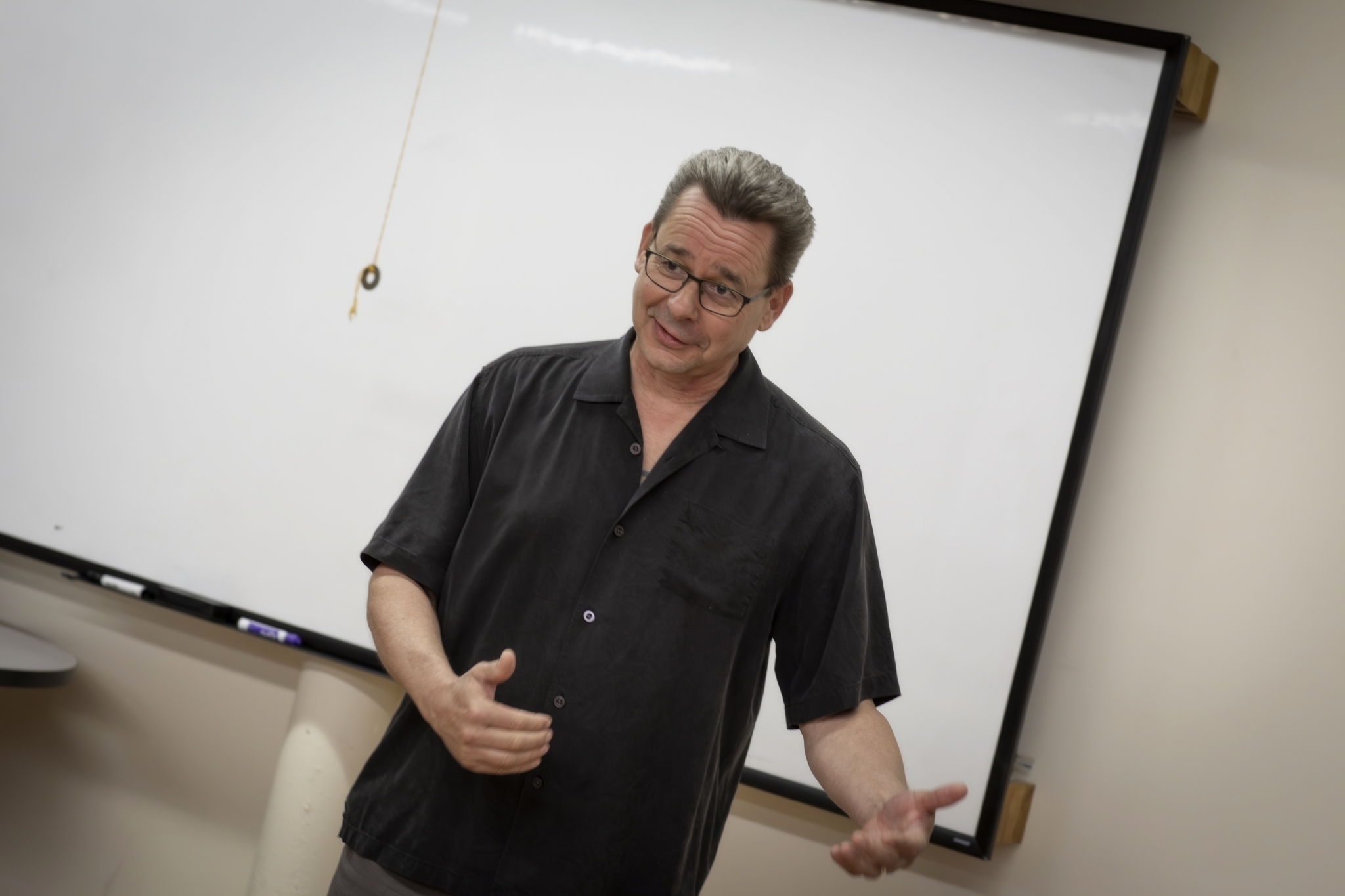
”Finally, Andrew Cortés takes the stage—the last time he addressed the group was at their orientation. “This is a big deal,” he says. “This is a milestone.
“This is going to put you on a successful path so that you never have to go back to where you have been. Every single day you go to work is a statement of your character. There are days when you don’t want to do it but you will because it’s about you as a person. You are committed to someone who is paying you a good wage to make every hour count because it makes you feel great when you know you have done your part.
“We’re tracking you guys. You're all going to get out at different times. What are you going to do first?”
“Come here,” the seven men answer, almost in unison.
“Come here, get into our community,” continues Andrew. “Nobody gets ahead alone—communities move people ahead and you're part of this community now. We’re here, we care about you, and sometimes that’s enough to get you from a hard place to a better place.”
“Of course we want you to stay in Rhode Island but if you move across the country this certificate will get you a job anywhere,” adds Andrew.
As they all go for the pizza and cookies brought in for the celebration—making sure that they’ve carefully placed the valuable certificates far from the pizza sauce—Ian talks about the personal significance of this work.
“This is my tiny little thing I can do with my tiny little life that I have on this planet. I'm a carpenter—I have these skills and this is what I can do.”
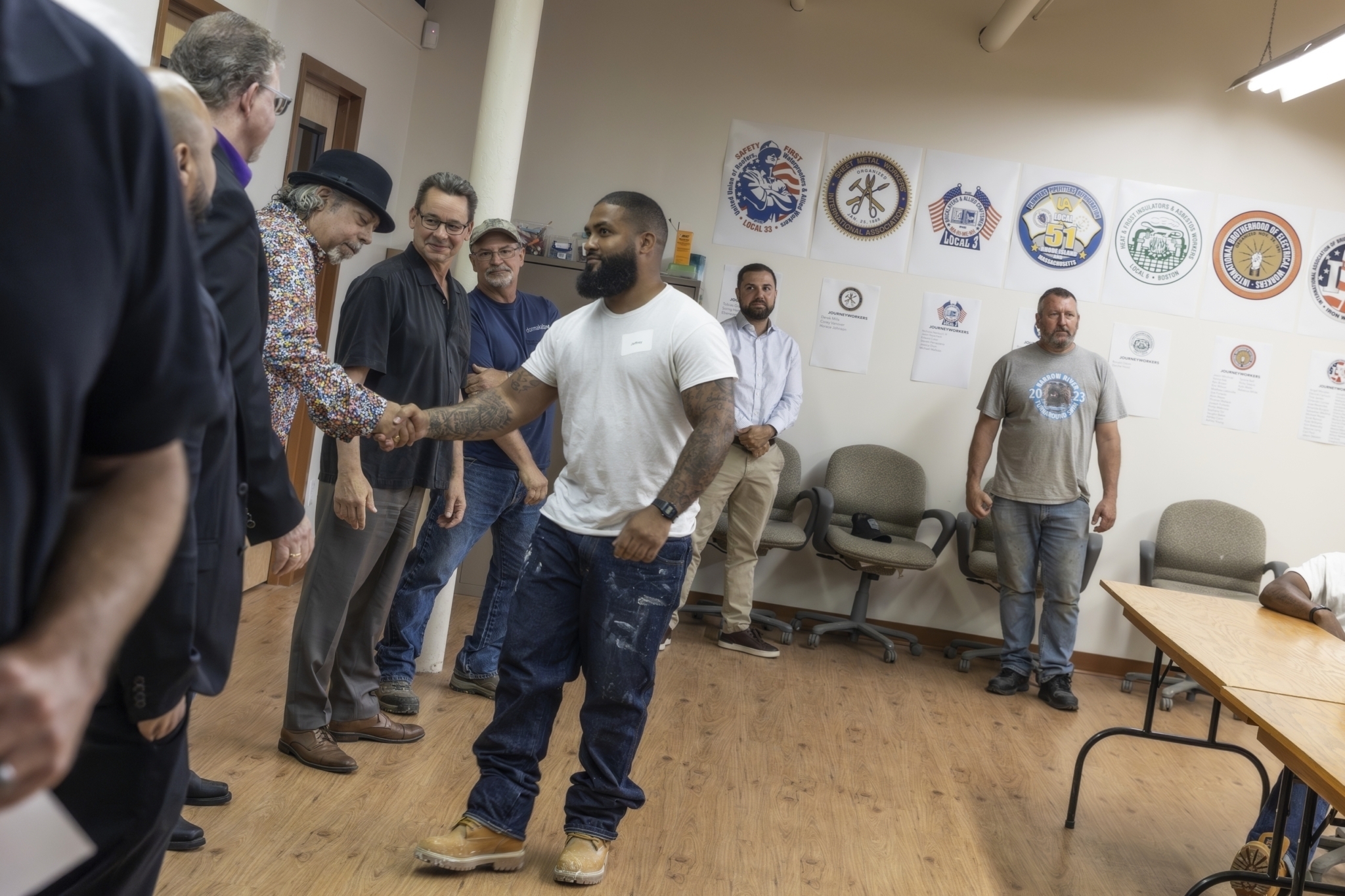
Postscript: Jeffrey P. was released from the ACI on Wednesday July 3, just missing the July 1 start date—he will have to wait until September to start the next stage of his apprenticeship.


